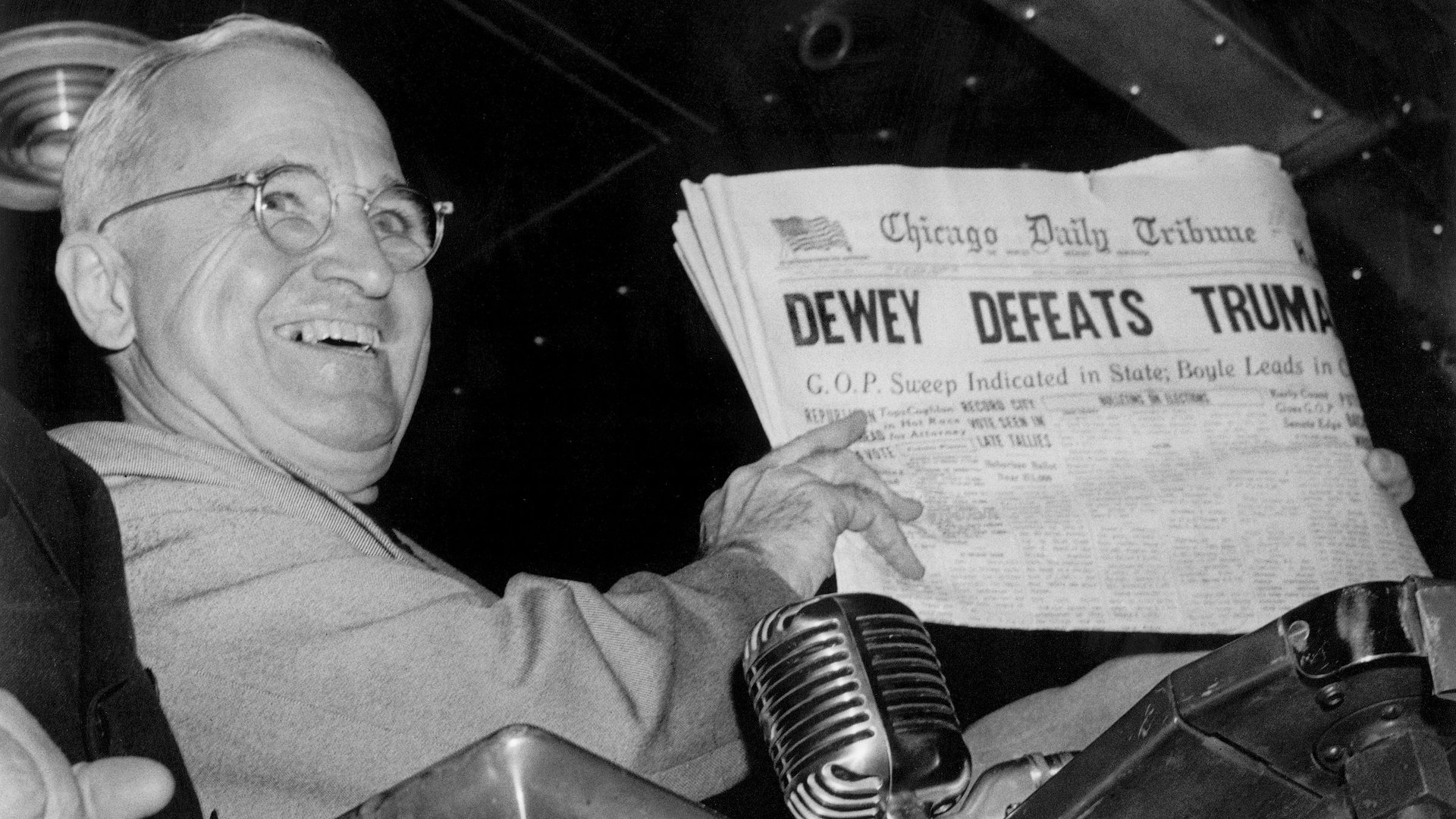The most comforting thing about the US election is its familiar chaos
The 2020 US general election has been the most widely anticipated in decades, and not just because the results will have far-reaching implications. As the pandemic’s impact on the voting process became clear, so did the realization that any result would immediately become entangled in speculation, conspiracy theory, and very real litigation.


The 2020 US general election has been the most widely anticipated in decades, and not just because the results will have far-reaching implications. As the pandemic’s impact on the voting process became clear, so did the realization that any result would immediately become entangled in speculation, conspiracy theory, and very real litigation.
President Donald Trump falsely declared victory in the early hours of Wednesday morning, and has spent the intervening hours casting as much doubt on the validity of mail-in ballots—which lean heavily pro-Biden. While it feels chaotic, it all tracks: Leading up to the election, allies in the Republican party pushed measures to limit access to voting, from fake ballot boxes to limited polling sites to alleged sabotage of the US Postal Service.
Election chaos is ultimately about confusing and dismaying the public, and the world has been here before.
How did we get here
The way US voting systems are set up is suboptimal. Different rules for every state and a drawn-out, difficult process that breeds exhaustion do not a high voter turnout make. Add a pandemic, and it gets a lot trickier.
The US missed the deadline for a lot of common-sense things experts say should be done to protect elections—clear government warnings about foreign meddlers, additional funding and measures for secure voting, or maintaining paper ballot records. That’s partially due to complacency, and partially because president Donald Trump thought it would work in his favor. “It is inherently difficult to remedy election disruptions after the fact,” one expert analysis of election violence noted.
By the digits
79,646: The number of votes in three US states that could have changed the results of the 2016 general election—less than one-tenth of 1% of participating voters
21: Number of US states targeted by Russian operatives during the 2016 election
1: Number of votes on the Supreme Court that could have changed the results of the 2000 election by not stopping vote counting in Florida
>40: Number of election-related lawsuits the Republican party is participating in, two months before the vote
300,000: Undelivered ballots the USPS was ordered to do a sweep for on election day 2020, but the USPS said it would continue on its own timetable
136.6 million: Votes cast in the 2016 election
159.8 million: Projected votes cast in the 2020 election
A brief history of chaos
1801: The House of Representatives broke an electoral college tie to favor Thomas Jefferson for US president over his Federalist rival Aaron Burr. The chaos that ensued prompted the 12th Amendment to the constitution.
1876: The most bitterly contested American election to date ends in a back-room deal declaring Republican Rutherford B. Hayes president, halting Reconstruction and ushering in nearly a century of white supremacist rule in the South.
1927: A contest in Liberia is called “the most rigged election in history” after the incumbent reports receiving votes equivalent to 15 times the national population.
1965: The US enacts the Voting Rights Act, finally taking action to prevent racists from denying Black Americans and other minority groups the right to vote.
1988: In Mexico, the Institutional Revolutionary Party government claims the national vote-counting computer crashed in an effort to cover up a massive election-rigging effort.
2000: In the case of Bush v. Gore, the US Supreme Court halts ongoing recounts in Florida, declaring George W. Bush president.
2007: Estonia holds the first national general election with internet voting.
2016: Donald Trump becomes the fourth US president to win the electoral college while losing the popular vote.
2019: Trump becomes the third US president to be impeached after asking the Ukrainian government to release damaging information about a political rival ahead of the election.
2020: The Iowa Democratic party’s attempt to run its presidential nominating caucus on a custom app goes terribly wrong
Where do we go from here?
Navigate the madness by remembering your best practices for all media: Consider context, the source of the information, and take a deep breath. You’re likely to see claims of fraud and intimidation. Can you verify these claims with credible journalists and government officials?
Your most important virtue is patience. There’s no requirement to know the election winner today or even this week, even if the cable networks (and the candidates) think it so.